What is happening to the UK's R number?published at 16:09 GMT 26 March 2021
The R number is a simple but crucial figure at the heart of lockdown decisions across the UK.
Read MoreNicola Sturgeon says it may well be "too early" to lift lockdown after 7 May
She points to increased travel as an indicator that people are not strictly sticking to the lockdown measures. The FM wants the public to ask themselves the question: "Is this journey necessary?"
In the past 24 hours 60 more deaths have been registered and although hospital admissions are up by 21, ICU patient numbers fall by five
Prime Minister Boris Johnson is due to set out the UK government's thinking on easing the stringent measures
He will lead the daily coronavirus briefing for the first time since returning to work having recovered from the disease
Construction firms say they face financial collapse unless the lockdown can be eased
BBC Scotland News
The R number is a simple but crucial figure at the heart of lockdown decisions across the UK.
Read MoreThat concludes BBC Scotland's live online coverage for Thursday. Today we learned:
The live page will resume early on Friday.
 Reality Check
Reality Check
Prime Minister Boris Johnson was asked about the chart shown at his Downing Street briefing that showed the UK having the highest number of coronavirus deaths in Europe.
He stressed that comparing these figures between countries at this stage is difficult.
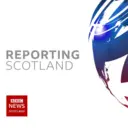 Reporting Scotland
Reporting Scotland
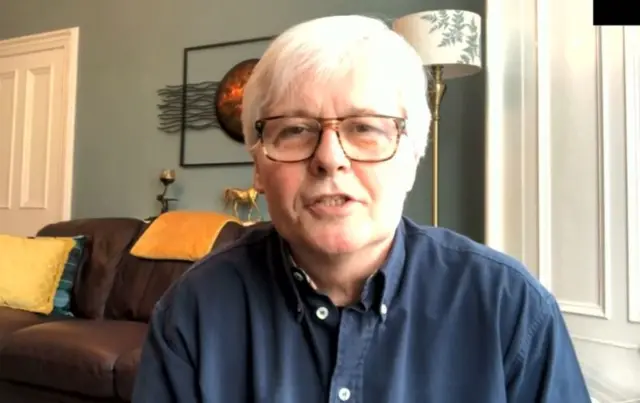
Pat Rafferty from the Unite Union doesn't trust building firms to stay within the rules
As construction prepares to resume in England from Monday, it is still not certain if Scotland will follow.
In Scotland all but essential work is banned. Some construction firms are pushing for a re-start, but the union Unite wants them to stay closed until safety can be guaranteed.
Quote MessageI don't completely trust them. There are already some construction firms we know operating in Scotland that we don't consider essential services and who are breaching these regulations. I think we need some kind of body there who is going to oversee these sites.
Pat Rafferty, Unite Union
Allow X content?
This article contains content provided by X. We ask for your permission before anything is loaded, as they may be using cookies and other technologies. You may want to read X’s cookie policy, external and privacy policy, external before accepting. To view this content choose ‘accept and continue’.
Allow X content?
This article contains content provided by X. We ask for your permission before anything is loaded, as they may be using cookies and other technologies. You may want to read X’s cookie policy, external and privacy policy, external before accepting. To view this content choose ‘accept and continue’.
What should you expect your child to achieve during lockdown?
 Jamie McIvor
Jamie McIvor
BBC Scotland education correspondent
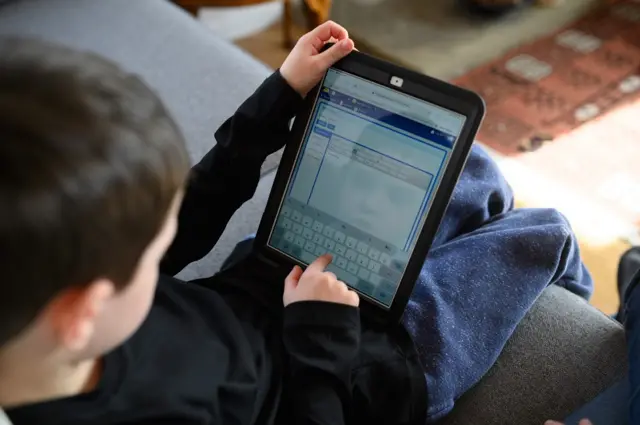 Image source, Getty Images
Image source, Getty ImagesMany schools are providing educational activities for pupils just now.
However the aim is not to continue formal education - it is to try to keep learning alive.
The SSTA union has warned that many students are not fully engaging in these activities, which are voluntary for the pupils.
Concerns have also been expressed about the difficulties facing families who do not have internet access. They could lose out on educational resources.
However, some schools have provided other learning materials and advice has been given on the range of other educational activities children – with or without the internet – can take part in.
Mr Adamson says he has also heard of cases of older children being challenged while out shopping on their own for their family.
"This really needs to stop, because it is totally legitimate to do your shopping in a way that keeps your children safe."
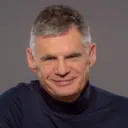 Drivetime with John Beattie
Drivetime with John Beattie
BBC Radio Scotland
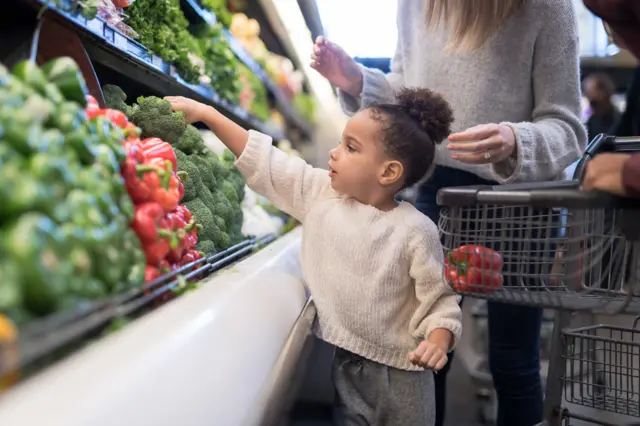 Image source, Getty Images
Image source, Getty ImagesScotland's child commissioner Bruce Adamson has said it is "absolutely allowed and understandable" for parents to take their children shopping with them if they have no other option.
It comes after Harriet Hall, a single mum from Edinburgh, told how she was challenged by a supermarket worker after she took her two children to her local Sainsbury's.
Mr Adamson told BBC Scotland's Drivetime that shop workers must understand when it is not appropriate to insist on their "one shopper per household" rule.
 Drivetime with John Beattie
Drivetime with John Beattie
BBC Radio Scotland
Dr David Nabarro from the World Health Organisation (WHO) said "too many" healthcare workers around the world were dying from Covid-19.
He said this group of people must be better protected, for example by using face masks which filter out particles.
"These masks are in short supply. There's a global shortage of these kinds of masks and therefore the World Health Organisation is clear: protect the good masks for health workers everywhere in the world. Don't let them be taken by people who are not health workers."
However, he also explained face covering can be mildly useful for protecting those around you if you are asymptomatic.
 Drivetime with John Beattie
Drivetime with John Beattie
BBC Radio Scotland
The WHO's Dr David Nabarro says the most useful tool in tackling Covid-19 is for people to be able know when they are sick and therefore isolate themselves.
This means having a test available and he urges countries to ramp up testing.
He hopes in the future a test will be developed that can be done from anywhere, though he warns we may still be some way away from having instant point-of-contact testing.
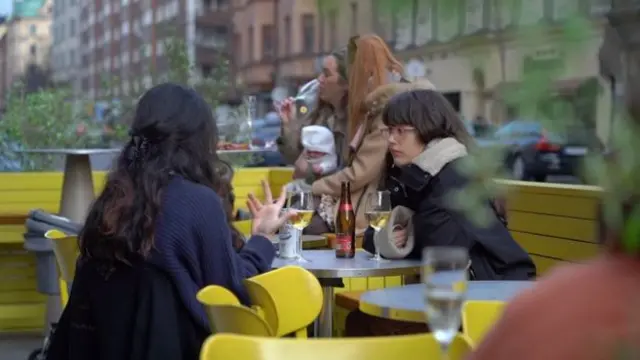
Pubs and cafes remain open in Sweden
Asked about Sweden not going into lockdown, Dr Nebarro insisted the approach being taken there was not largely different from elsewhere - but rather it was relying much more heavily on the public to follow recommendations from the government on measures like social distancing.
Lockdown is a useful tool for governments if they are not confident about the public responding to measures, he explains.
Allow X content?
This article contains content provided by X. We ask for your permission before anything is loaded, as they may be using cookies and other technologies. You may want to read X’s cookie policy, external and privacy policy, external before accepting. To view this content choose ‘accept and continue’.
 Thomas Mackintosh
Thomas Mackintosh
BBC London News
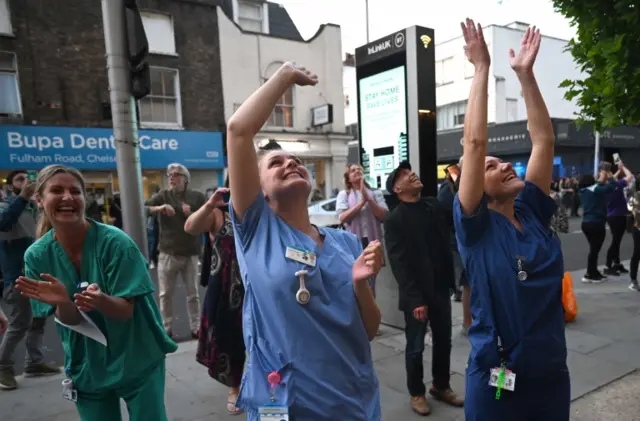 Image source, EPA
Image source, EPAThe woman behind the idea of the UK's clap for carers on Thursday nights at 8pm has told the BBC the gesture has exceeded her expectations.
The initiative was devised by Annemarie Plas, from Brixton, who was inspired by same event happening in her home country of the Netherlands, and in many other countries.
"It’s been amazing how everyone has taken it on and personalised it to show their appreciation," she said.
"People are applauding, using instruments, singing on the street and it feels as if we are connected again.
"I am really impressed with our key workers, whether I go to the shop or the post office – I am really thankful to these people.
"Clapping for our carers is important to do because the realisation that we all have the importance of their jobs they have not always have had the respect they are currently getting."
Allow X content?
This article contains content provided by X. We ask for your permission before anything is loaded, as they may be using cookies and other technologies. You may want to read X’s cookie policy, external and privacy policy, external before accepting. To view this content choose ‘accept and continue’.
The latest from NHS Scotland and the Scottish government, including social distancing and stay at home advice.
Staying at home does not mean you are alone - there are many ways you can help your community.
3. Citizens Advice Scotland, external
Providing advice on benefits and employment rights.
The latest advice and support for businesses.
Useful information on how to cope with home schooling and keeping your family safe.
Tips from the Scottish government to help get you through this difficult time.
7. Coronavirus (COVID-19): public use of face coverings, external
Scottish government advice on the personal use of face coverings during the pandemic.
Allow X content?
This article contains content provided by X. We ask for your permission before anything is loaded, as they may be using cookies and other technologies. You may want to read X’s cookie policy, external and privacy policy, external before accepting. To view this content choose ‘accept and continue’.
The Scottish government will give three pieces of information tomorrow on testing capacity.
For NHS labs it set that target for 3,500.
The government will set out how many tests have been carried out at the end of this month and set out next steps in terms of setting further eligibility for testing.
Next week it will set out the test, trace and isolate strategy.
 Drivetime with John Beattie
Drivetime with John Beattie
BBC Radio Scotland
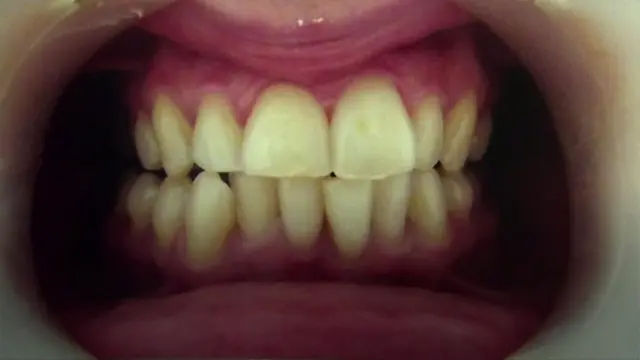
Scotland's chief dental officer Tom Ferris highlights many dentists are still offering a phone consultation service and you can be referred to one of the 56 urgent dental care centres which are open.
Mr Ferris says if you have any of the following you should contact your dentist:
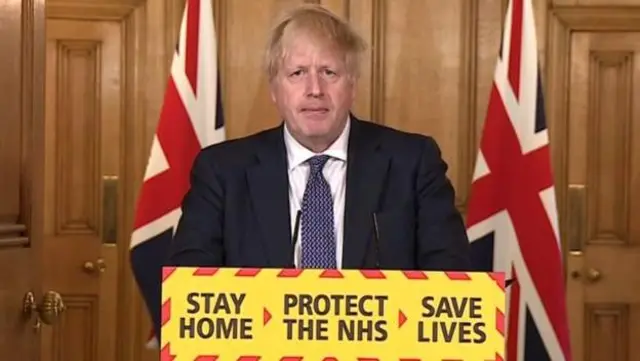 Image source, bbc
Image source, bbcBoris Johnson says he can confirm "for the first time we are past the peak of this disease and on the downward slope".
The PM says the UK will beat the disease by "growing resolve and ingenuity", including by working on a vaccine.
He promises that next week the government will release a "comprehensive plan... on how we can get the economy moving, how we can get children back to school and how we can travel to work and make life in the workplace safer".
He says the plan will be based on "how we can continue to suppress disease and at same time restart the economy".
Johnson says it will be "guided by science" and he will attempt to "build maximum political consensus".
He adds: "We have come through the peak. We have come under what could have been vast huge Alpine tunnel and now we see the sunlight in the pasture ahead of us.
"It is vital we do not now lose control and run into second and bigger mountain."
Allow X content?
This article contains content provided by X. We ask for your permission before anything is loaded, as they may be using cookies and other technologies. You may want to read X’s cookie policy, external and privacy policy, external before accepting. To view this content choose ‘accept and continue’.
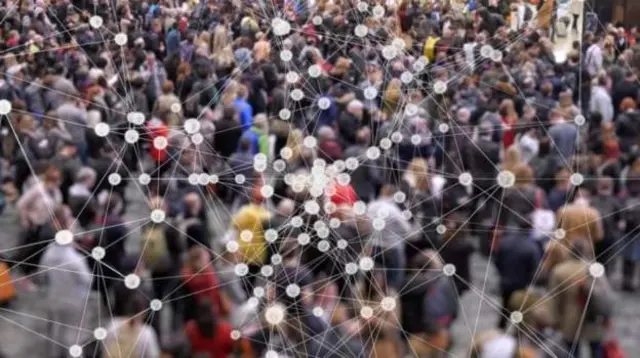 Image source, Getty Images
Image source, Getty ImagesThere has been a lot of talk at recent briefings about the “R number” and what it means for the spread of the virus.
The basic reproduction number or simply the R0 (pronounced R-nought) is a way of rating a disease's ability to spread.
It's the number of people that one infected person will pass the virus on to, on average, assuming that nobody is immune and people don't change their behaviour to avoid getting ill.
Read our explainer from BBC health and science correspondent James Gallagher?